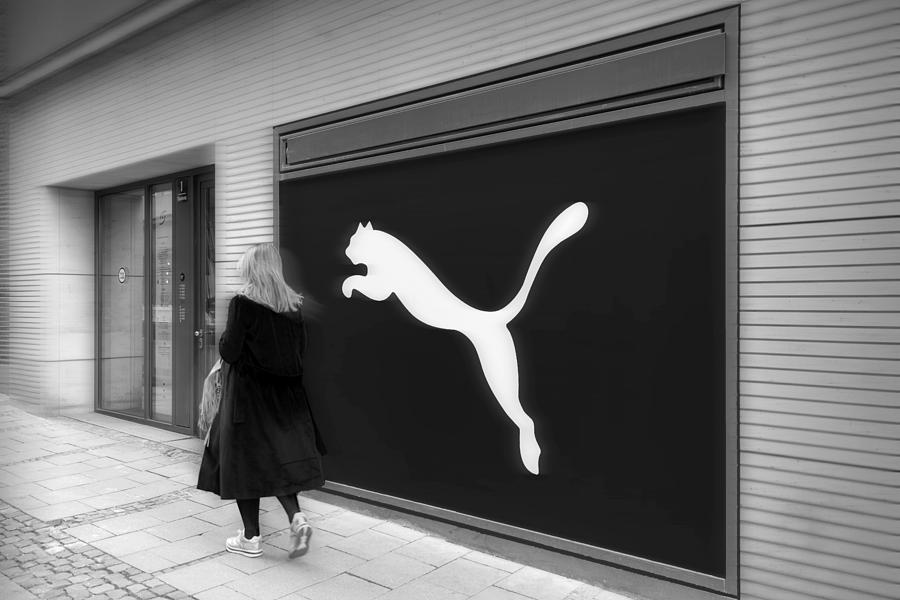
Jupiter-Pluto Aspects
 When Jupiter aspects Pluto, what unfolds isn’t your everyday goal-setting, pop-psychology, vision-board ambition. It’s the need to seek success, but also significance. The individual bearing this aspect in their natal chart can feel that wealth and power may well be part of making life more satisfying — but often it is more in the sense that life must be meaningful. Jupiter adds breadth and optimism, a faith that the universe is ultimately benevolent and that expansion is both possible and necessary. Pluto, in contrast, provides depth, intensity, and a ruthless eye for what must die in order for new growth to emerge. Together, they form a potent alchemy, where optimism meets obsession, and vision meets the will to dominate or completely transform.
When Jupiter aspects Pluto, what unfolds isn’t your everyday goal-setting, pop-psychology, vision-board ambition. It’s the need to seek success, but also significance. The individual bearing this aspect in their natal chart can feel that wealth and power may well be part of making life more satisfying — but often it is more in the sense that life must be meaningful. Jupiter adds breadth and optimism, a faith that the universe is ultimately benevolent and that expansion is both possible and necessary. Pluto, in contrast, provides depth, intensity, and a ruthless eye for what must die in order for new growth to emerge. Together, they form a potent alchemy, where optimism meets obsession, and vision meets the will to dominate or completely transform.
There’s also a distinctly global, far-reaching flavor here. Jupiter’s affinity with foreign lands, long journeys, and philosophical systems entwines beautifully with Pluto’s need to dig deep and get to the bottom of things. So it’s common for these individuals to pursue power through international channels, perhaps in politics, global finance, or spiritual movements with wide influence. Yet this kind of power can corrupt if left unchecked. Jupiter can justify; Pluto can manipulate. The journey then is not only to acquire power but to be purified by it, to wield it in service of something greater than ego.
“This wealth can take many forms: sometimes a very physical form, as in the charts of those whose work involves mining various types of ore, coal, oil or other minerals; or sometimes a more psychological form – the wealth that is buried in the unconscious.” Sue Tompkins, Aspects in Astrology
This isn’t simply about wealth in the bank or belief in the divine; it’s about the deep, sometimes desperate longing to find meaning in a world that too often feels hollow. With Jupiter and Pluto entwining in a natal chart, money isn’t just money — it becomes a symbol of one’s destiny. Picture Jupiter as a great benevolent, arms wide, blessing everything he surveys — he’s expansive, optimistic, always seeking more. Now enter Pluto, the shadowy ruler of the underworld, calling from beneath the surface, “Yes, more — but at what cost?”
Such individuals may strike gold, lose it all, and rebuild with even greater fervor. The financial aspect is undeniable — wealth is often a key theme — but this isn’t about idle luxury or simple accumulation. It’s about power. Power to control, to influence, to be self-made and self-sustaining. But this dance isn’t without its devils. The intensity of Pluto can make Jupiter’s natural optimism manic, obsessive. Belief systems can harden into dogma. The pursuit of wealth can slide into greed, or worse, a sense of spiritual bankruptcy masked by material abundance.
For most people, the Jupiter-Pluto connection doesn’t manifest in these huge ways, but rather in the quiet compulsion to bet big. It shows up when someone takes out a substantial loan. Maybe it’s a business venture, maybe it’s a home, maybe it’s the dream of sending their child to a better school. And then, on the more internal plane — belief. Jupiter and Pluto stir that pot. You often see individuals with these aspects holding powerful belief systems. It might be religious, spiritual, political, or entirely personal — but it’s intense. It’s “this is what I know to be true” or, on the other side, “I refuse to believe in anything at all.” Sometimes they’ve deconstructed their faith and live in a kind of post-religious reality, rejecting what they see as dogma. Other times, they find themselves drawn to mystical or fringe beliefs. This is often because they need their faith to mean something, to transform them, not just comfort them. Whatever these people believe in — or refuse to believe in — it’s got to matter. There’s no room for fluff. Even atheism, for someone with this aspect, can be practiced like a faith: methodical, defiant, powerful.
Secret Knowledge
The person touched by this aspect will often pursue knowledge with a passion. They want to understand the hidden gears turning behind the events of life, the secret logic of suffering, the hidden cosmos. They may bury themselves in philosophy, psychology, esoterica, conspiracy theories, religion, or quantum physics — anything that hints at a deeper order beneath the apparent chaos. And they pursue this with the fervor of someone trying to read the blueprint of the universe before it self-destructs. This thirst can lead them into the desert. Especially when the aspect is fraught with tension — a square, an opposition, or simply being entangled in other difficult placements. What was once an exhilarating desire for understanding can become a bone-deep crisis of faith. Life throws them a curveball — a loss, a betrayal, an illness, something that doesn’t fit within their carefully constructed philosophy. Suddenly the scaffolding collapses, and they are left dangling in the void.
This isn’t just a bit of doubt. It leaves a person staring out the window at 3 a.m., saying, “Is there any point to all this?” Their beliefs may crumble. Their gods may go silent. And in this silence, something truly Plutonic begins — the death of old certainties, the disintegration of borrowed truths. But from this wreckage, something new can be born. Not a shiny new dogma, but a deeper, quieter understanding. Faith, if it returns, is no longer based on inherited doctrines or second-hand ideas. This isn’t the aspect of the naive optimist, but as the wise teacher, transformed by Pluto’s trials.
When a belief system collapses under the weight of lived experience, particularly for someone marked by a challenging Jupiter-Pluto aspect, it can feel less like a shift in thinking and more like a bereavement. You lose a part of yourself. It is, in every way, a kind of death. Death of a worldview that once gave life meaning. The comforting scaffolding of “this is why,” “this is how,” “this is who I am,” suddenly falls away. And the individual is left alone in a kind of internal wilderness, forced to sit with the unfiltered reality of existence.
The rebuilding process is slow, often lonely, but quietly miraculous. The individual may begin to pick up fragments — a line from a book, a conversation overheard, a feeling that arises during a walk — and form a new understanding. This isn’t about finding the answer, but about building a belief system that breathes, that can hold paradox and uncertainty. It’s a movement from blind faith to conscious trust, from doctrine to dialogue. Some may explore alternative spiritual paths — the tarot, meditation, the teachings of the East, the rituals of the Earth. Others might turn to philosophy, psychology, or simply the gentle religion of kindness and curiosity. The point is not where they land, but how they live: no longer needing to know everything, but committed to feeling deeply and thinking critically.
The new belief system, whatever form it takes, tends to be deeply personal. It isn’t worn like a badge, but carried like a locket — close to the heart. There’s a humility to it, but also a strength. For once someone has walked through the valley of belief’s death and emerged with a new understanding, they possess a wisdom that cannot be faked or borrowed. It is uniquely theirs. The expansion born of destruction. The light born of depth. The faith born of loss.
Where Jupiter might ask what you believe, Pluto asks, “Why? And what are you afraid to admit?” Together, they create a pressure cooker of transformation: Jupiter expands what Pluto exposes. This can be overwhelming. It can feel like too much truth, too fast. But within this intensity lies the opportunity for unparalleled growth. And here’s where it gets truly fascinating. The power struggle isn’t always with others, but it comes from within. The moral questioning, the faith that falters and reforms, the new definitions of good and evil, right and wrong. Jupiter wants you to see the bigger picture, but Pluto wants you to confront your role within it.
Those who emerge from this process — and most do, though not unchanged — carry a quiet authority. A moral weight. They don’t preach their beliefs, they embody them. There’s a strength to them, a steadiness that doesn’t come from certainty, but from having questioned everything and come out the other side with something still intact: the will to live meaningfully.
With Jupiter’s grandiosity and Pluto’s penetrating force, the desire for empowerment can be overwhelming. This isn’t the sort of ambition that makes you jot down five-year goals in a leather-bound planner. This is ambition with teeth — a hunger to shape the world, or at least your own corner of it, with such force that the landscape never looks the same again. These individuals often feel compelled to rise above their circumstances, to control their fate. But power, as we’ve learned from every ancient myth and half-decent superhero film, comes with a price. And the price is often ethical. Pluto doesn’t do things by halves; he drags up your darkest motives, your hidden desires, your manipulative tendencies — and throws them in the light of Jupiter’s idealism. And so you’re faced with the inevitable question: What are you willing to sacrifice for power? Your peace? Your relationships? Your soul?
And then comes the crisis — because it always does with these two. You chase a dream, a position, a truth… and somewhere along the way, you’re tested. Perhaps you gain what you wanted and it doesn’t satisfy. Or you lose it all and are forced to ask why it mattered so much in the first place. Either way, the universe demands an answer: What do you really believe? This is where faith is truly put through its paces. Faith in a god or a philosophy, but more in yourself — your judgment, your worth, your place in this vast, often brutal cosmos. It’s easy to feel guided when things are going well, when your aspirations align with your outcomes. But when you’re brought low, when you’re stripped of your beliefs, and still have to look in the mirror… what do you see? What do you cling to?












 Sun Square Pluto Synastry: You’ve Got That Power Over Me
Sun Square Pluto Synastry: You’ve Got That Power Over Me
 Scorpio’s Cold Withdrawal
Scorpio’s Cold Withdrawal
 Moon Conjunct Pluto Synastry
Moon Conjunct Pluto Synastry
 Venus-Pluto Synastry: A Love So Powerful That It Might Just Kill Them
Venus-Pluto Synastry: A Love So Powerful That It Might Just Kill Them
 Mars Square Pluto Natal Aspect: The Unbreakable Spirit
Mars Square Pluto Natal Aspect: The Unbreakable Spirit
 Reflections on a Past Venus-Pluto Synastry Aspect
Reflections on a Past Venus-Pluto Synastry Aspect
 Mercury Conjunct Venus Synastry
Mercury Conjunct Venus Synastry
 Mars-Pluto Synastry: Something Quite Dark and Dangerous
Mars-Pluto Synastry: Something Quite Dark and Dangerous
 Uranus Transits 8th the House: Rebirth from Chaos
Uranus Transits 8th the House: Rebirth from Chaos
 Venus Trine Mars Synastry
Venus Trine Mars Synastry
 Mars-Saturn Synastry: The Eternal Loop
Mars-Saturn Synastry: The Eternal Loop
 Composite Sun in the 8th House: Weather the Storm
Composite Sun in the 8th House: Weather the Storm
 Mars in Aquarius: Sex drive
Mars in Aquarius: Sex drive
 Sun Conjunct Pluto Synastry: Enlightening or Annihilating
Sun Conjunct Pluto Synastry: Enlightening or Annihilating
 Venus Trine Pluto: Dark Desires
Venus Trine Pluto: Dark Desires
 Mars Conjunct Pluto Synastry
Mars Conjunct Pluto Synastry
 Moon Opposite Uranus Natal Aspect
Moon Opposite Uranus Natal Aspect
 The Watery Gardeners: Cancer, Scorpio, and Pisces
The Watery Gardeners: Cancer, Scorpio, and Pisces
 Transiting Pluto Aspect Natal Mars: Are You Mad as Hell
Transiting Pluto Aspect Natal Mars: Are You Mad as Hell
 Moon Conjunct Pluto Natal Aspect: Emotional X-Ray Vision – Seeing Through Souls Since Birth
Moon Conjunct Pluto Natal Aspect: Emotional X-Ray Vision – Seeing Through Souls Since Birth